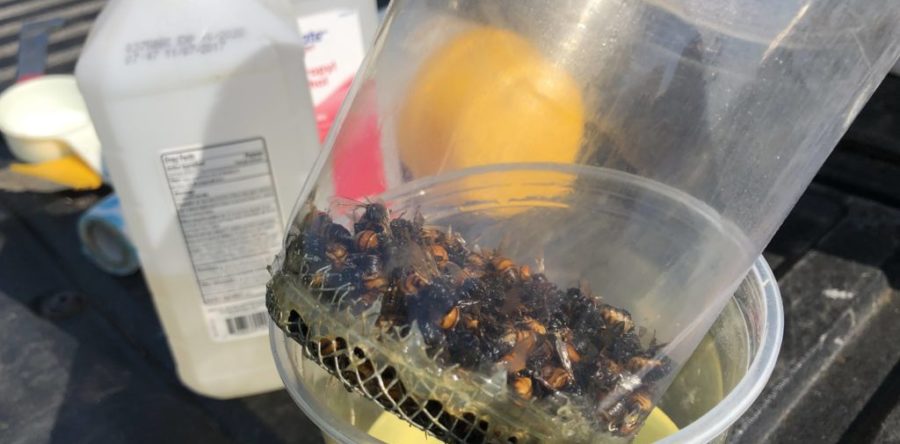Originally by Jim Orem and Ginger Davidson, edited by J. Morgan
October is the month to prepare your bees for what Mother Nature has in store this upcoming winter. You might be wondering, what could cause the demise of my bees during the winter? Beyond diseases from mite infestation, it can be either starvation or moisture... maybe the occasional mouse.
1) Varroa Mites are a whole topic by themselves. Mites are basically virus machines. During August, they are out-producing the bees in numbers. So, this was the ‘critical’ time to address them and curtail the spread of viruses to your young bees that will be expected to live all winter long. These tiny menaces do not have a foolproof method for eradication so develop your plan and stick to it. The goal is to knock the mites down as far as possible before we put the hives away for the winter.
2) Sixty pounds of reserve honey stores is the minimum recommendation for our area. A deep frame full of capped stores can weigh anywhere from 6 to 10 pounds. So, that’d be 6 to 10 frames of deep foundation full of capped stores and some say you should plan on having as much as 12 –18 deep frames. If you don’t have this by now, start your fall feeding ASAP as time is running out. Here's more information on preparing for winter. Now, we switch to 2:1 syrup – that’s 2 parts sugar to 1 part water (or, 8lbs of sugar to a half-gallon of water). The days are shorter and cooler so the bees do not need the extra moisture to help cool the hive. Take any late honey off. Remove all queen excluders to avoid the bees moving above the excluder into a feeder or super leaving the queen below.
3) As for the moisture, the huddling cluster of overwintering bees produces a water vapor similar to the exhaled breath of air that we produce. The cooler outside air can cause the moisture particles to condense and fall back down on the bees as water drops. This, in turn, causes them to freeze. So be cognizant of excess water in the hive and provide ventilation all winter. (For information on moisture boards)
You’ll notice with cooler temperatures, the blooms of goldenrod and aster quickly start diminishing. This is the sign to evaluate hives and combine where necessary or shakedown colonies that have too much empty space. Weak hives go should be combined into stronger ones – do not combine weak hives together.
As the drones are being kicked out for the winter, you may see dead bees in front of your hive and very little eggs or brood as the bees have shifted toward storing honey for the winter months.
It is a great idea to provide an additional supplemental food source during the winter. This can be done in a variety of ways – sugar boards, dry sugar (mountain camp method), winter patties, or others. Start making sugar boards, feeding spacers, or patties at your method warrants. These will need to be in place by Thanksgiving.
Additional winter preparation ideas to consider are entrance reducers, mouse guards, upper entrances, windbreaks, and insulation.
Finally, what kind of shape is your equipment in? I will be running replacement deeps out to my apiaries before the weather turns to poo... and I'll be getting those boxes with rotted corners into position to take to one of Garry's Winter Workshops to fix over the winter. Keep your eye out for these workshops in the coming months. Opportunity could be scarce and space, limited.




3 Responses